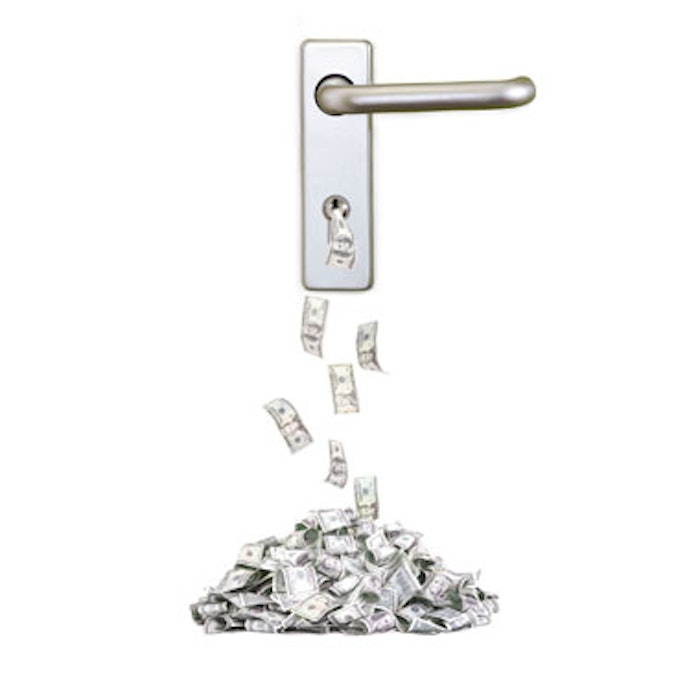
It’s time to renew your lease. Are you ready to negotiate? If you’re like many practice owners, the answer is no. “Lease renewals are the No. 1 transaction in all of commercial real estate—for every new lease, there are 20 or 30 lease renewals happening—but it is the transaction that often receives the least amount of attention,” says Colin Carr, founder and CEO of CARR Healthcare, a nationwide commercial tenant brokerage based in Denver.
For most practices, rent is the second largest expense, behind payroll. And the common practice of adjusting staff levels to reflect a changing business environment simply won’t work with lease payments. Once you sign on the bottom line, you are stuck with those costs for the life of the lease.
“You get one crack at your lease every seven or 10 years. Make a mistake, and it could cost you a lot of money; conversely, if you capitalize on the opportunity, it could save your practice tens to hundreds of thousands of dollars,” says Carr.
So how can you get the best deal? Follow these steps.
1. Know Your Strengths
Before you head to the negotiating table, understand why your landlord would not want to lose you as a tenant.
“The commercial real estate market has corrected twice in the past 15 years. Both times, a lot of companies went out of business, but medical tenants remained in place and many continued to thrive,” says Carr. “A lot of commercial landlords are aware of the financial strength and stability of medical and healthcare tenants.”
Medical tenants also tend to require much higher buildout costs and more specialized spaces than retail tenants. As a result, practice owners often sign on to longer-term leases, which are particularly valuable for landlords. “Longer leases improve the value of a commercial property,” says Craig Melby, founder of LeaseSmart, a nationwide tenant brokerage based in Stuart, Florida.
2. Talk to Your Neighbors
Speaking with other tenants in your building can provide valuable information on the concessions they were offered and the outcomes of recent renewals.
“Some of your fellow tenants will have recently gone through the renewal process,” says Dale Willerton, a Los Angeles-based tenant lease consultant and author of Negotiating Commercial Leases and Renewals for Dummies. “They can provide valuable insights into how your landlord negotiates.”
Neighboring businesses also can alert you to their own relocation plans. “You can lose four neighbors and get four new ones in a five-year cycle. Knowing someone is moving may affect your decision to stay or move,” says Willerton.
You may also find out some surprising news. Maybe the landlord is planning to reconfigure the space surrounding your practice, or maybe an adjacent tenant with more bucks wants to expand in your direction. “You want to learn such things in advance,” says Willerton.
3. Create Competition
Don’t tip your hand by letting the landlord think you are not shopping around. “Suppose your landlord asks ‘Are you looking at other properties?’ You might respond, ‘Oh we don’t want to move—we’re not talking with any other landlords.’ Right there, your landlord has you. Your landlord has no reason to give you a good deal,” says Willerton.
“Ask yourself: ‘Where would I go if I have to move? Do I have relocation options if this landlord plays hardball and tries to double my rent?’ Line up some alternative locations. Create some competition for the landlord,” Willerton suggests.
4. Do Market Research
Carr recommends hiring a professional broker to help uncover available options—both to lease and purchase—and put together a competitive analysis of the market. “This will show your options to relocate, your options to purchase a building or land and, if you want to stay in your current space, it will show what you should aim for in terms of lease rates and concessions from your existing landlord,” he says.
But don’t just check real-estate listings. Also enter into nonbinding negotiations with potential landlords to see what they would be willing to offer you to relocate to their spaces. “The most common mistake is to only negotiate with the existing landlord on the current location,” Willerton notes.
“Most people go to the landlord and ask for an offer when their lease is expiring,” says Carr. “But you should never ask for an offer to renew. You should be dictating the terms you would be willing to accept to stay on the property—and that is based on what your other opportunities are. It’s really difficult to negotiate from a position of strength if you don’t know what other landlords would offer you.”
But all this takes time, so you’ll need to start doing your market research early on— “at least 12 months prior to the lease expiring,” Carr says. Or, if you can’t negotiate favorable lease terms, are you thinking about buying property instead? Start even earlier: 18 to 24 months in advance of your lease expiration. “The ground-up construction process takes a solid 18 to 24 months in most areas. So if you wait until 6 to 12 months before your lease expires, you might not have the appropriate time to buy and develop a property,” Carr says.
5. Get Help
Does this all sound complicated? It is. That’s why it often pays to have outside assistance, says Melby. “A tenant broker can help get you a fair price by referencing comps and handling negotiations.”
Look for a broker who specializes in healthcare and tenant and buyer representation. “The vast majority of commercial real estate brokers focus on representing landlords and sellers—and this is an often-overlooked conflict of interest, particularly if it is a local broker who represents landlords in your area. It becomes very hard for them to give an objective view of the market,” says Carr.
The best place to find a broker is through your industry contacts. “If you have a healthcare-specific lender, attorney or CPA, ask them for a reference,” says Carr.
You might also want to consider the services of an attorney. “Brokers are there to minimize costs,” says William D. Himmelstein, CEO of Chicago-based Tenant Advisory Group, a real estate tenant brokerage firm. “Attorneys are there to minimize risk.” The broker will make sure your lease terms are competitive with those of other leases in your vicinity; the attorney will rewrite clauses that might put you at risk.
6. Be Prepared To Walk
Having the landlord chase you as you are walking away is the best position to be in. “Tenants get the best deal when they are walking away from the negotiating table—not when they are at it,” says Willerton. “Remember that landlords always hold something back that they will give up only if it’s clear the tenant might move. The tenant is the landlord’s customer, and the customer deserves to be pursued.”
Landlords often use concessions, such as free rent packages and tenant improvement allowances, to entice prospective tenants to sign a lease. But they rarely court existing tenants in the same way. “Our perspective is that a landlord needs to treat an existing tenant the same way they would treat a prospective tenant,” says Carr. “You make this happen when you know the market, you know your options, and you go into the negotiation with the understanding that you’re willing to consider other opportunities.”
But be sure to start the process early, so you can enter negotiations in a position of power. “Time is your friend in real estate,” Himmelstein says. “The earlier you start thinking about renewal, the more advantage you will have over the landlord. Relocating a practice takes a lot of time (and your landlord knows it), so if you delay until six months before lease expiration, the landlord will have the upper hand.”
Phillip M. Perry is a freelance writer based in New York City.
Image copyright Getty Images











